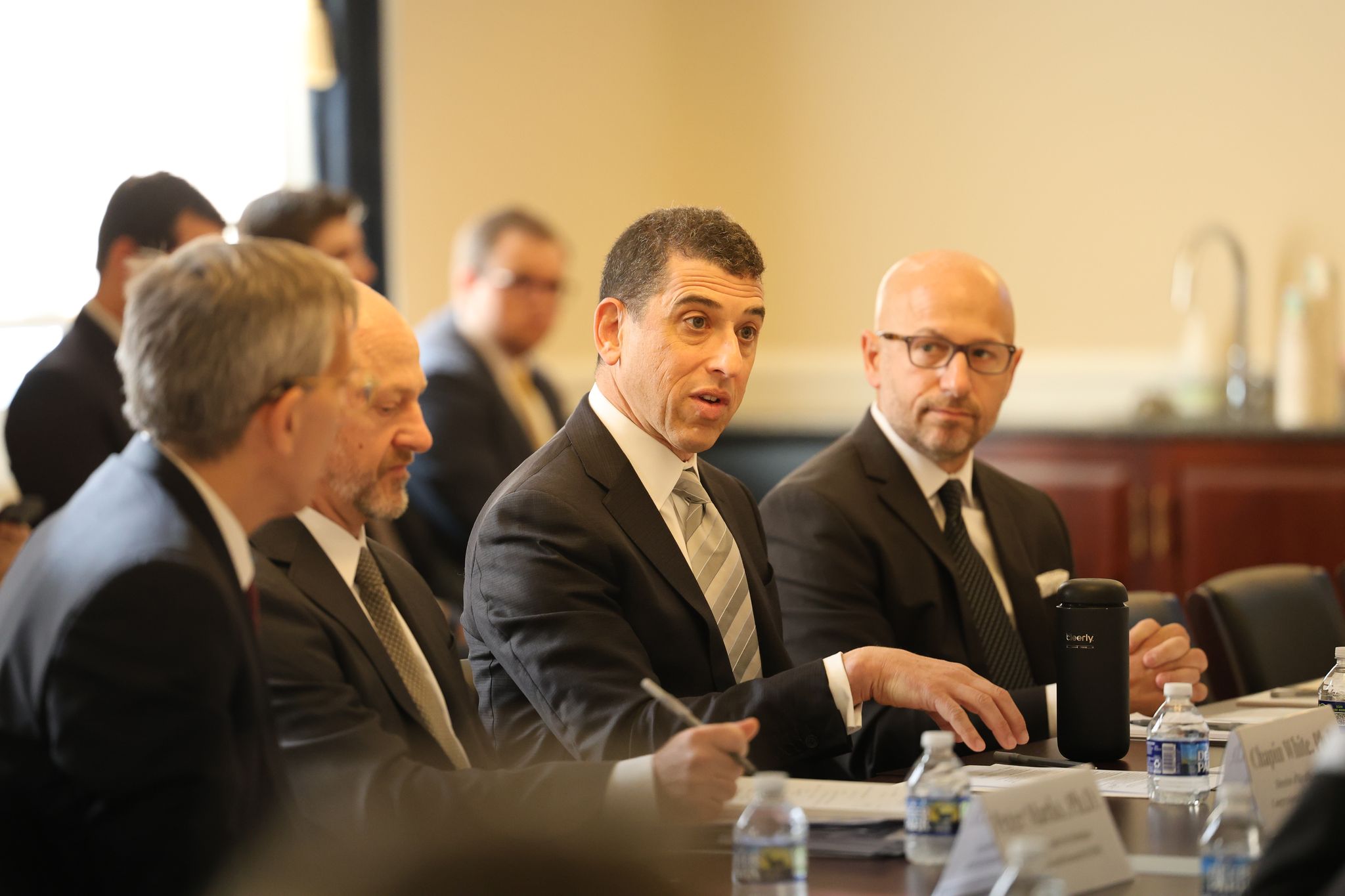House Budget Committee Health Care Task Force Examines Budgetary Effects of Increasing Patient Access to Cell and Gene Therapies
WASHINGTON, D.C. – Today, House Budget Committee Health Care Task Force (HCTF) Chair Michael C. Burgess M.D. (R-TX) led a roundtable titled “Paying for 21st Century Cures: Examining the Budgetary Effects of Increasing Patient Access to Cell and Gene Therapies.”
Innovative, potentially curative cell and gene therapies are becoming available to patients, with many more in the development pipeline. High upfront costs of these new therapies present unique budgetary challenges to federal and state governments, private payors, and patients.
Budget HCTF Chair Burgess led the discussion to examine the projected impacts to the federal budget and potential policy solutions to increase patient access to innovative cell and gene therapies.
Committee members heard from panelists:
- Chapin White, Director of the Health Analysis Division at the Congressional Budget Office (CBO);
- Dr. Peter Marks, Director of the Center for Biologics Evaluation and Research at the Food and Drug Administration (FDA);
- Dan Mendelson, Chief Executive Officer of Morgan Health; and,
- Mike Capaldi, Executive Director of the Institute for Gene Therapies.
Health Care Task Force Chairman Burgess at the Roundtable:
“We all know the healthcare struggle with budget issues. If we are ever going to move from where we are now to where we should be in the future, we have to somehow fix the budget.
Modifying genetic material within the patient’s cells and developing personalized treatments were nonexistent before.
We passed a big bill in 2016 [21st Century Cures Act, P.L. 114-255] to accelerate new biomedical advancements. Leading up to that law being enacted, we held roundtables all over the country, discussions, and hearings for years leading up to actually passing the legislation and providing the funding for that research, and to streamline the approval process to foster collaboration.
I think we can look back to that success. And then the question becomes, what can we be looking forward to for future successes. Today was a crucial discussion in the licensing of gene therapy, regulatory hurdles, budgetary impacts, and potential policy solutions to build upon the 21st Century Cures Act.”
Background:
- In recent years, there has been a surge of innovative, potentially curative cell and gene therapies receiving Food and Drug Administration (FDA) approval for diseases ranging from rare cancers to genetic disorders like sickle cell disease.
- Unlike many existing medications, of which a single product is used to treat all patients, cell and gene therapies are personalized to a patient’s individual cells and genes.
- Due to their personalization, many cell and gene therapies have been able to overcome longstanding barriers to treating certain diseases.
- Many cell and gene therapies have very high up-front costs due to their complex and personalized nature but have the potential to lower long-term health care costs by curing or significantly reducing the burden of disease.
- This poses unique budgetary challenges and opportunities to federal and state governments, private payors, and individual patients.
- Due to the innovative nature of cell and gene therapies, existing policy and payment frameworks may not be suited to provide for patient access to these new therapies.

Photo: HCTF Chair Burgess leading the roundtable titled “Paying for 21st Century Cures: Examining the Budgetary Effects of Increasing Patient Access to Cell and Gene Therapies.” Credit: House Budget Committee 
Photo: [From left to right] Dr. Peter Marks (FDA), Chapin White (CBO), Dan Mendelson (Morgan Health), and Mike Capaldi (Institute for Gene Therapies) Credit: House Budget Committee
- Existing payment models in both government and private health insurance plans were not designed to realize the benefits of these savings which can occur over a longer time horizon.
- As a result, House Budget Committee Republicans are leading the charge to examine new approaches and corresponding budgetary effects on coverage and reimbursement solutions to increase patient access to cell and gene therapies.
More from the House Budget Committee on Health Care:
Read more from Health Care Task Force Chairman Burgess on Cell and Gene Therapies HERE.
Read more on the Health Care Task Force Roundtable examining CBO Projections of Democrats’ Drug Price Controls on patient access to new medicines HERE.
Read more on the Health Care Task Force Roundtable examining the deficit-driving Obamacare Innovation Center HERE.


